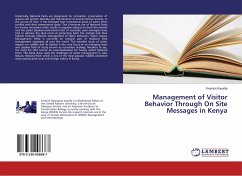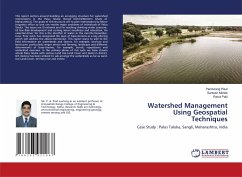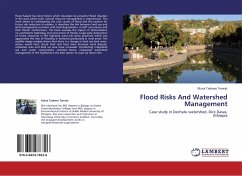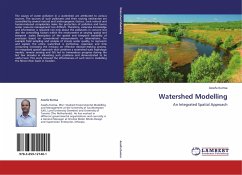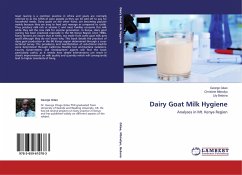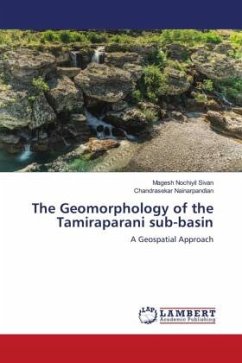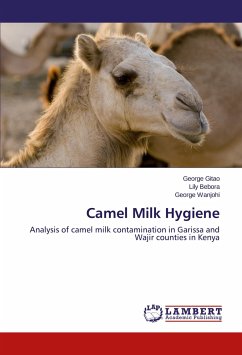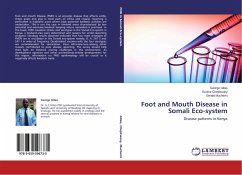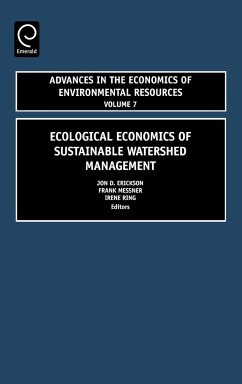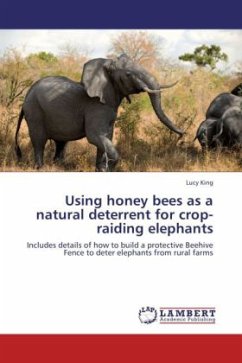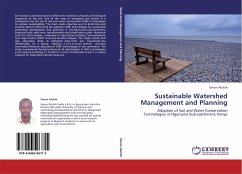
Sustainable Watershed Management and Planning
Adoption of Soil and Water Conservation Technologies in Ngaciuma Sub-catchment, Kenya
Versandkostenfrei!
Versandfertig in 6-10 Tagen
39,99 €
inkl. MwSt.

PAYBACK Punkte
20 °P sammeln!
Soil erosion is detrimental and affects the chemical, physical and biological properties of the soil. One of the ways of managing soil erosion in a catchment is by the use of soil and water conservation (SWC) technologies to achieve sustainability. The main study objective was to determine and examine factors influencing the adoption SWC technologies for sustainable watershed management and planning in the Ngaciuma sub-catchment. Empirical tools used were: questionnaires and observation guide. Numerical tools for data analysis comprised of descriptive statistics, non-parametric test, logit mod...
Soil erosion is detrimental and affects the chemical, physical and biological properties of the soil. One of the ways of managing soil erosion in a catchment is by the use of soil and water conservation (SWC) technologies to achieve sustainability. The main study objective was to determine and examine factors influencing the adoption SWC technologies for sustainable watershed management and planning in the Ngaciuma sub-catchment. Empirical tools used were: questionnaires and observation guide. Numerical tools for data analysis comprised of descriptive statistics, non-parametric test, logit model, SWOT and cost-benefit analyses. The study reveals that age, education, slope of cultivated land, farm size, household size, membership of a group, training in soil erosion control and land ownership influence adoption of SWC technologies in the catchment. The study recommends formal training of all stakeholders in SWC technologies and capacity building of farmers in other livelihoods areas to reduce pressure on watershed natural resources.



